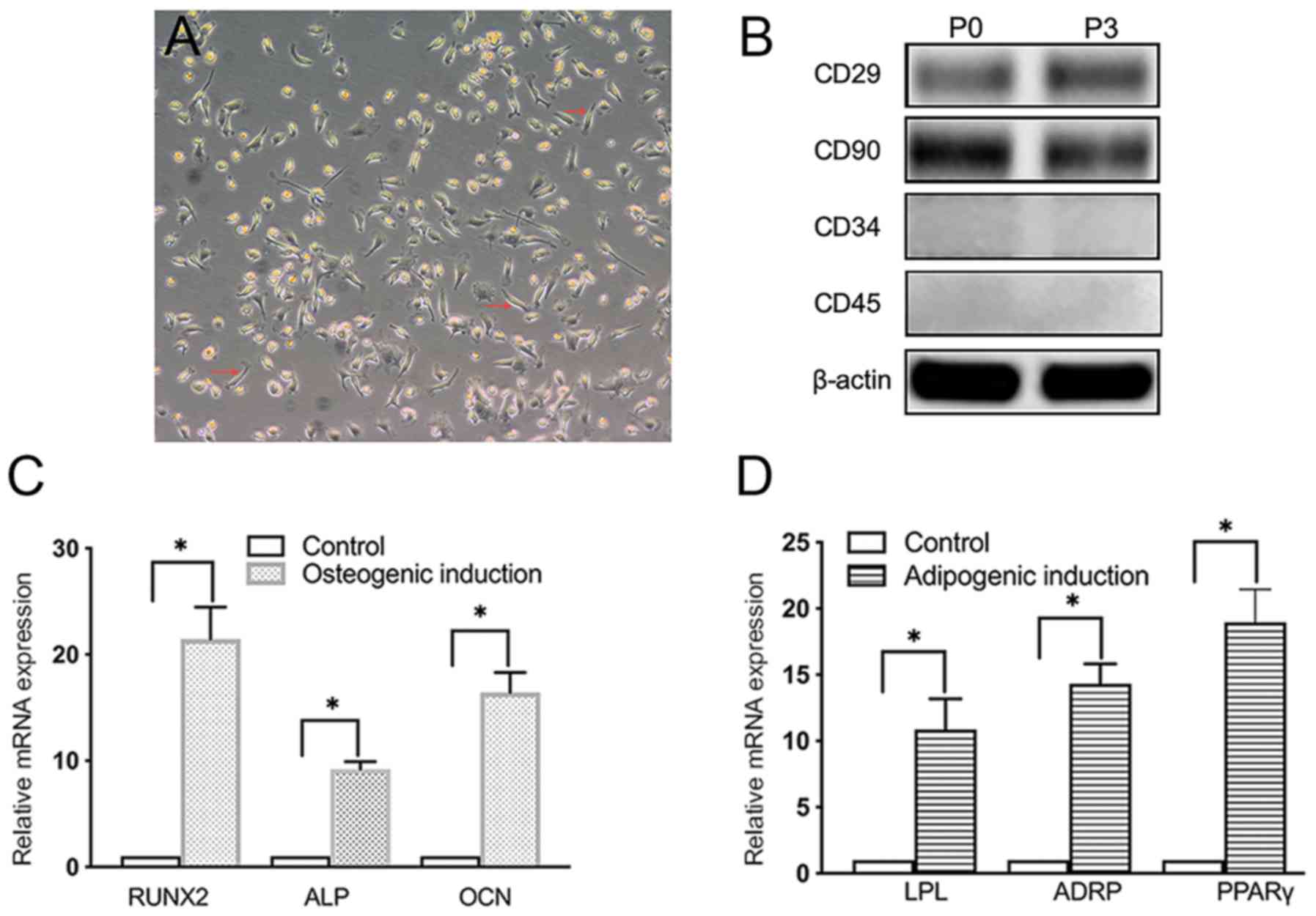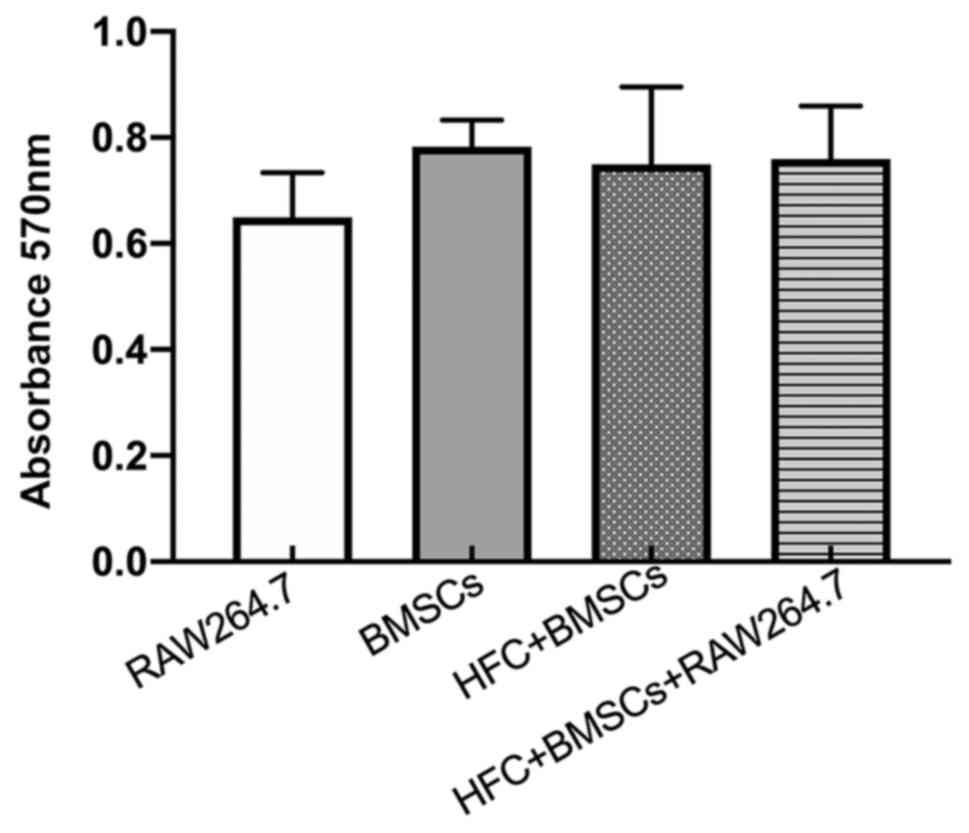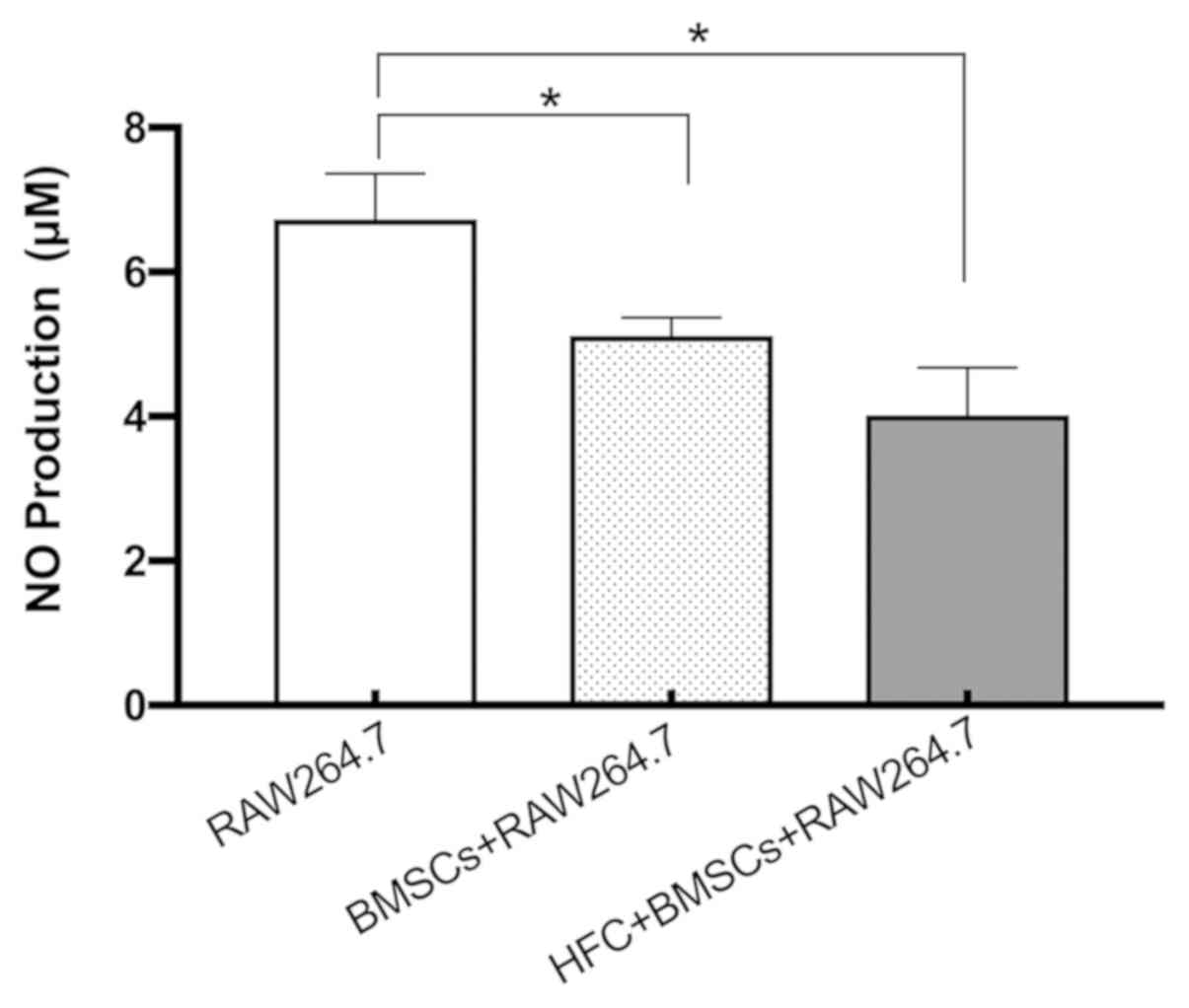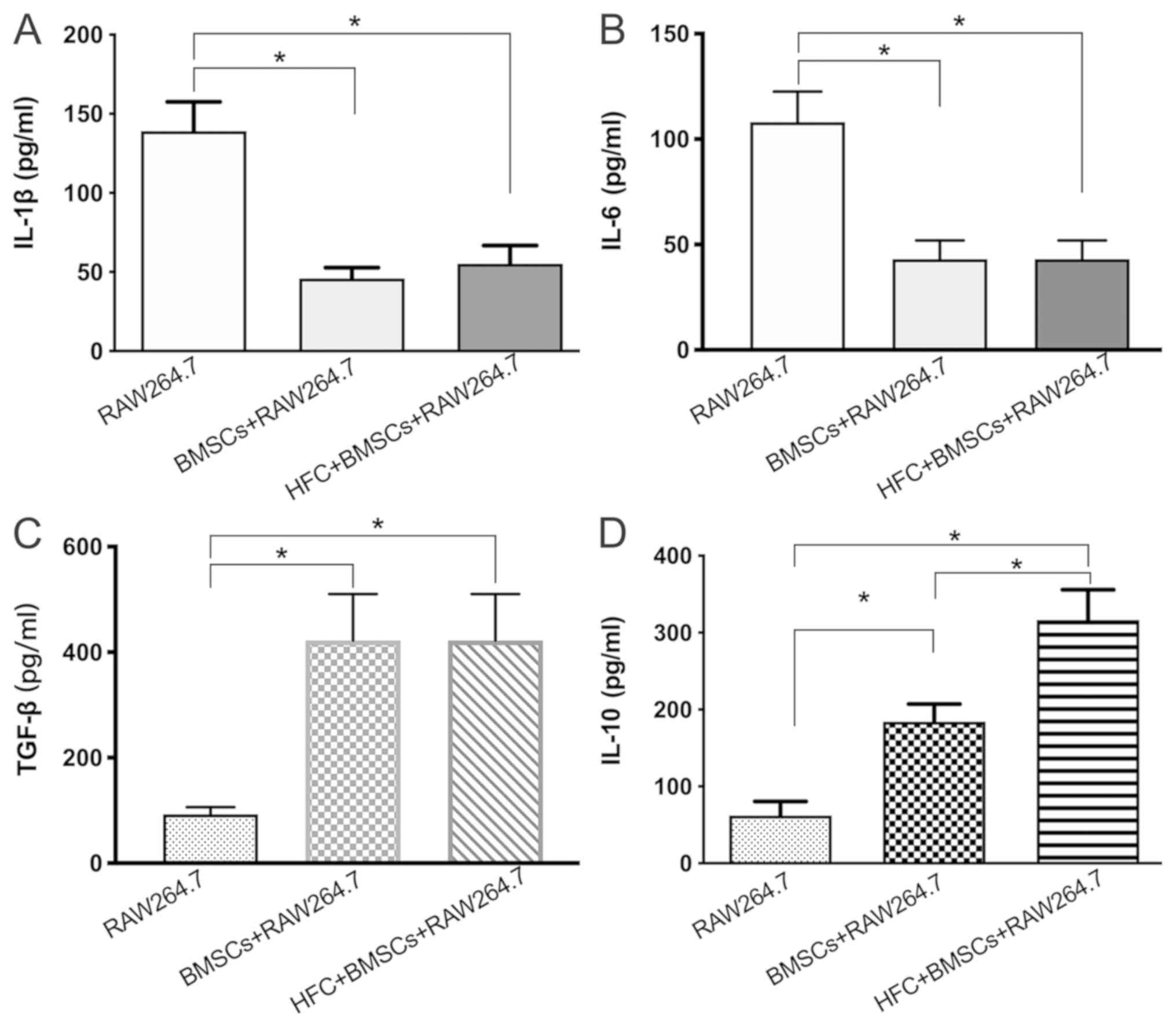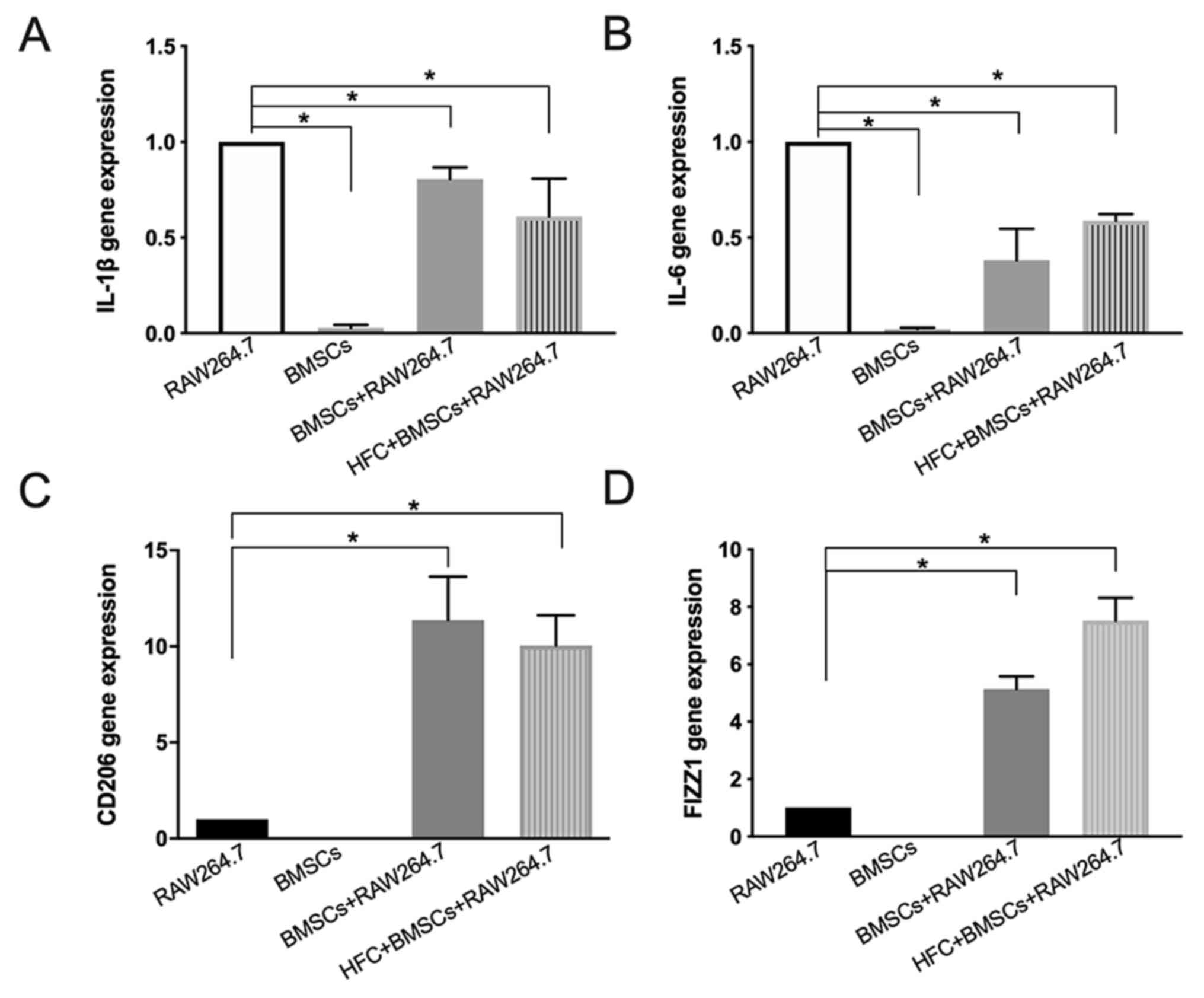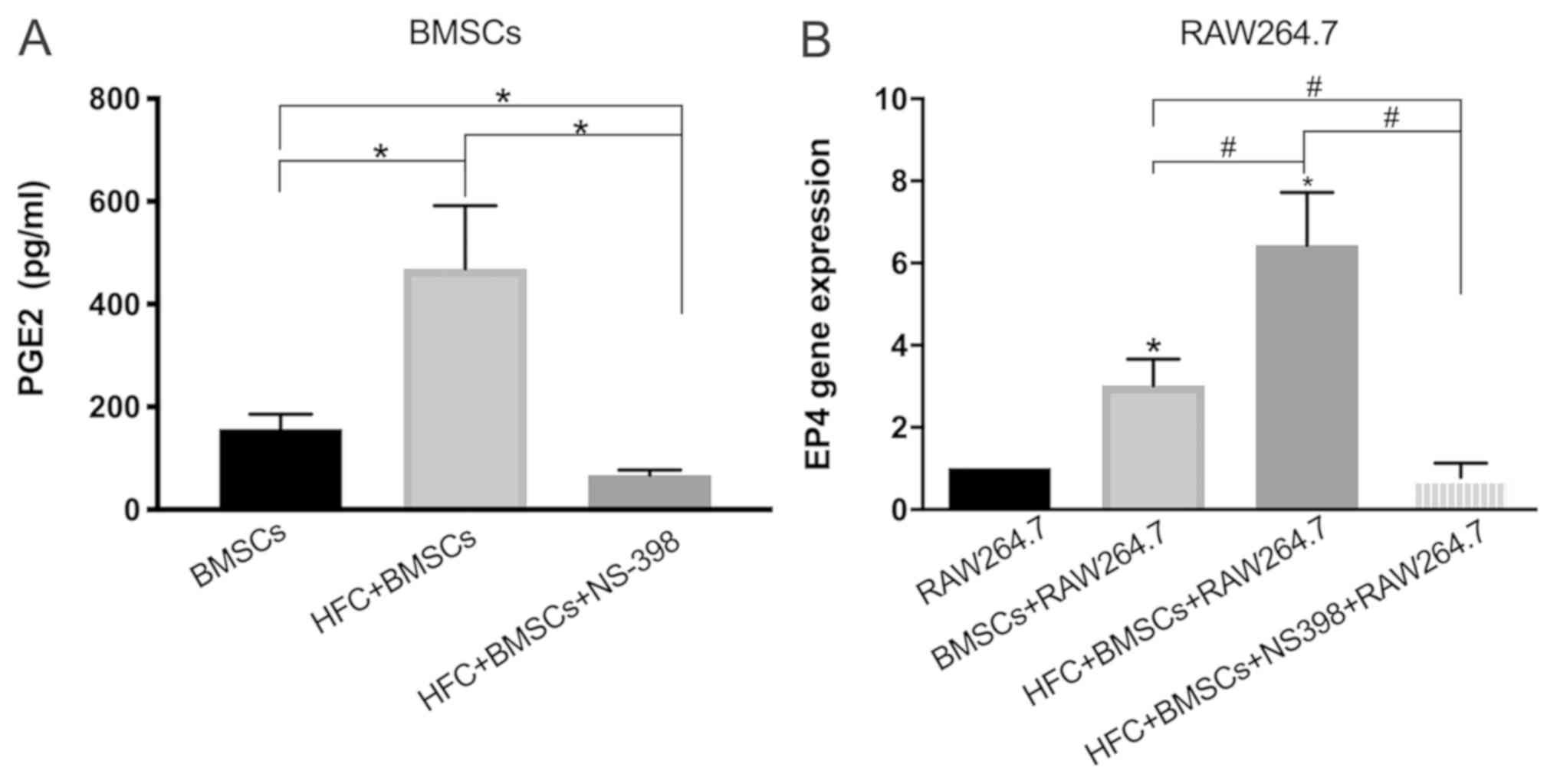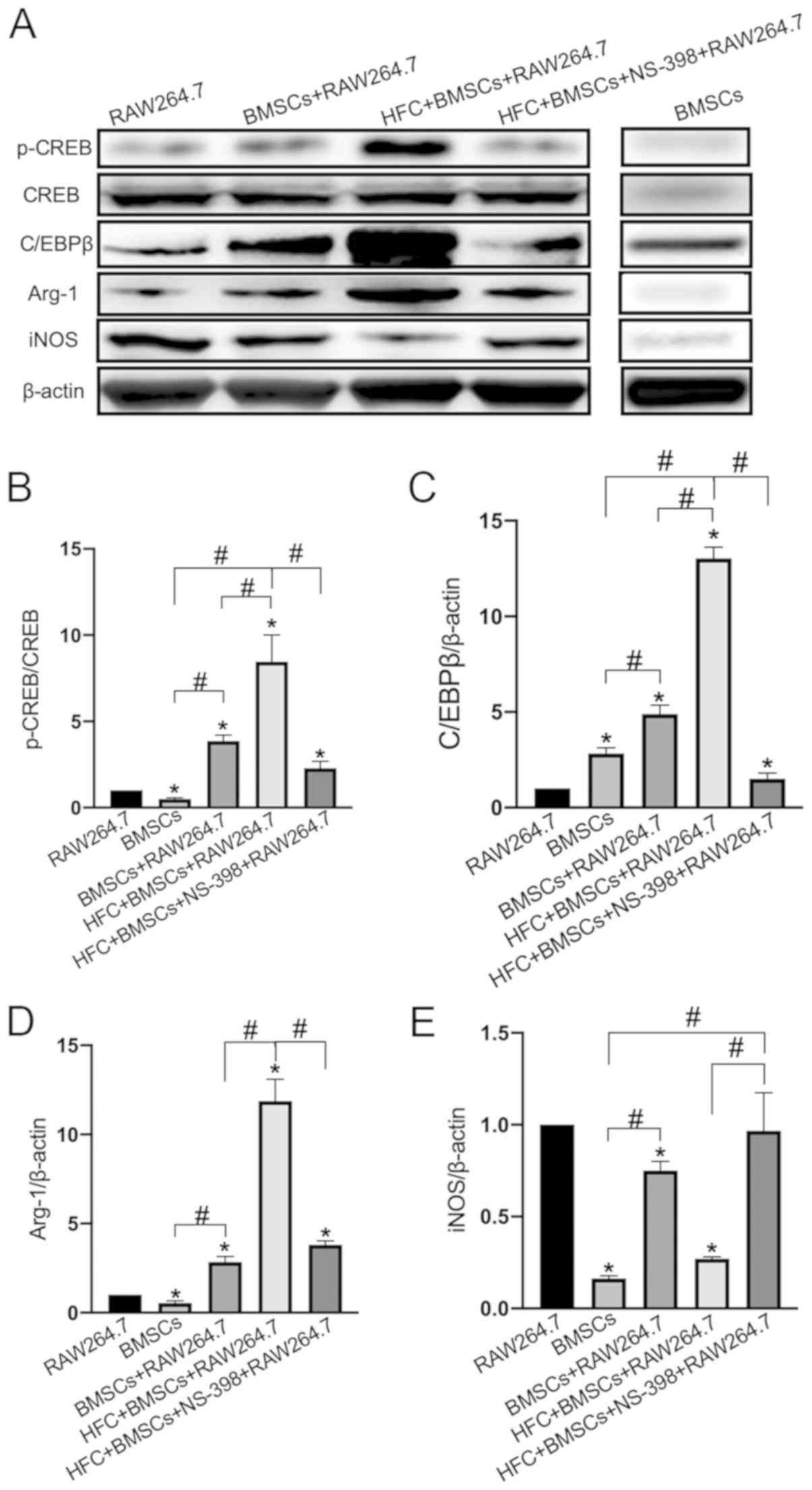|
1
|
Mantha S, Pillai S, Khayambashi P,
Upadhyay A, Zhang Y, Tao O, Pham HM and Tran SD: Smart hydrogels in
tissue engineering and regenerative medicine. Materials (Basel).
12(pii: E3323)2019.PubMed/NCBI View Article : Google Scholar
|
|
2
|
Costa-Almeida R, Calejo I and Gomes ME:
Mesenchymal stem cells empowering tendon regenerative therapies.
Int J Mol Sci. 2(pii: E3002)2019.PubMed/NCBI View Article : Google Scholar
|
|
3
|
Crupi A, Costa A, Tarnok A, Melzer S and
Teodori L: Inflammation in tissue engineering: The Janus between
engraftment and rejection. Eur J Immunol. 45:3222–3236.
2015.PubMed/NCBI View Article : Google Scholar
|
|
4
|
Przekora A: The summary of the most
important cell-biomaterial interactions that need to be considered
during in vitro biocompatibility testing of bone scaffolds for
tissue engineering applications. Mater Sci Eng C Mater Biol Appl.
97:1036–1051. 2019.PubMed/NCBI View Article : Google Scholar
|
|
5
|
Liu C and Sun J: Potential application of
hydrolyzed fish collagen for inducing the multidirectional
differentiation of rat bone marrow mesenchymal stem cells.
Biomacromolecules. 15:436–443. 2014.PubMed/NCBI View Article : Google Scholar
|
|
6
|
Blanco M, Vázquez JA, Pérez-Martín RI and
Sotelo CG: Hydrolysates of fish skin collagen: An opportunity for
valorizing fish industry byproducts. Mar Drugs. 15(pii:
E131)2017.PubMed/NCBI View Article : Google Scholar
|
|
7
|
Liu C and Sun J: Hydrolyzed tilapia fish
collagen induces osteogenic differentiation of human periodontal
ligament cells. Biomed Mater. 10(065020)2015.PubMed/NCBI View Article : Google Scholar
|
|
8
|
Raabe O, Reich C, Wenisch S, Hild A,
Burg-Roderfeld M, Siebert HC and Arnhold S: Hydrolyzed fish
collagen induced chondrogenic differentiation of equine adipose
tissue-derived stromal cells. Histochem Cell Biol. 134:545–554.
2010.PubMed/NCBI View Article : Google Scholar
|
|
9
|
Liu C, Liu X, Xue Y, Ding TT and Sun J:
Hydrolyzed tilapia fish collagen modulates the biological behavior
of macrophages under inflammatory conditions. RSC Adv.
5:30727–30736. 2015.
|
|
10
|
Rackham CL and Jones PM: Potential of
mesenchymal stromal cells for improving islet transplantation
outcomes. Curr Opin Pharmacol. 43:34–39. 2018.PubMed/NCBI View Article : Google Scholar
|
|
11
|
Mukherjee S, Darzi S, Paul K, Werkmeister
JA and Gargett CE: Mesenchymal stem cell-based bioengineered
constructs: Foreign body response, cross-talk with macrophages and
impact of biomaterial design strategies for pelvic floor disorders.
Interface Focus. 9(20180089)2019.PubMed/NCBI View Article : Google Scholar
|
|
12
|
Yang M and Liu L: MHC II gene knockout in
tissue engineering may prevent immune rejection of transplants. Med
Hypotheses. 70:798–801. 2008.PubMed/NCBI View Article : Google Scholar
|
|
13
|
Weston LE, Geczy AF and Briscoe H:
Production of IL-10 by alloreactive sibling donor cells and its
influence on the development of acute GVHD. Bone Marrow Transplant.
37:207–212. 2006.PubMed/NCBI View Article : Google Scholar
|
|
14
|
Sica A and Mantovani A: Macrophage
plasticity and polarization: In vivo veritas. J Clin Invest.
122:787–795. 2012.PubMed/NCBI View
Article : Google Scholar
|
|
15
|
Ben-Mordechai T, Palevski D,
Glucksam-Galnoy Y, Elron-Gross I, Margalit R and Leor J: Targeting
macrophage subsets for infarct repair. J Cardiovasc Pharmacol Ther.
20:36–51. 2015.PubMed/NCBI View Article : Google Scholar
|
|
16
|
Shapouri-Moghaddam A, Mohammadian S,
Vazini H, Taghadosi M, Esmaeili SA, Mardani F, Seifi B, Mohammadi
A, Afshari JT and Sahebkar A: Macrophage plasticity, polarization,
and function in health and disease. J Cell Physiol. 233:6425–6440.
2018.PubMed/NCBI View Article : Google Scholar
|
|
17
|
Bernardo ME and Fibbe WE: Mesenchymal
stromal cells and hematopoietic stem cell transplantation. Immunol
Lett. 168:215–221. 2015.PubMed/NCBI View Article : Google Scholar
|
|
18
|
Deng W, Chen W, Zhang Z, Huang S, Kong W,
Sun Y, Tang X, Yao G, Feng X, Chen W and Sun L: Mesenchymal stem
cells promote CD206 expression and phagocytic activity of
macrophages through IL-6 in systemic lupus erythematosus. Clin
Immunol. 161:209–216. 2015.PubMed/NCBI View Article : Google Scholar
|
|
19
|
Abumaree MH, Al Jumah MA, Kalionis B,
Jawdat D, Al Khaldi A, Abomaray FM, Fatani AS, Chamley LW and Knawy
BA: Human placental mesenchymal stem cells (pMSCs) play a role as
immune suppressive cells by shifting macrophage differentiation
from inflammatory M1 to anti-inflammatory M2 macrophages. Stem Cell
Rev Rep. 9:620–641. 2013.PubMed/NCBI View Article : Google Scholar
|
|
20
|
Kim J and Hematti P: Mesenchymal stem
cell-educated macrophages: A novel type of alternatively activated
macrophages. Exp Hematol. 37:1445–1453. 2009.PubMed/NCBI View Article : Google Scholar
|
|
21
|
Ripoll CB, Flaat M, Klopf-Eiermann J,
Fisher-Perkins JM, Trygg CB, Scruggs BA, McCants ML, Leonard HP,
Lin AF, Zhang S, et al: Mesenchymal lineage stem cells have
pronounced anti-inflammatory effects in the twitcher mouse model of
Krabbe's disease. Stem Cells. 29:67–77. 2011.PubMed/NCBI View
Article : Google Scholar
|
|
22
|
Bianco P, Riminucci M, Gronthos S and
Robey PG: Bone marrow stromal stem cells: Nature, biology, and
potential applications. Stem Cells. 19:180–192. 2001.PubMed/NCBI View Article : Google Scholar
|
|
23
|
Polymeri A, Giannobile WV and Kaigler D:
Bone marrow stromal stem cells in tissue engineering and
regenerative medicine. Horm Metab Res. 48:700–713. 2016.PubMed/NCBI View Article : Google Scholar
|
|
24
|
Wallace CS and Truskey GA: Direct-contact
co-culture between smooth muscle and endothelial cells inhibits
TNF-alpha-mediated endothelial cell activation. Am J Physiol Heart
Circ Physiol. 299:H338–H346. 2010.PubMed/NCBI View Article : Google Scholar
|
|
25
|
Livak JK and Schmittgen TD: Analysis of
relative gene expression data using quantitative PCR and the 2-ΔΔCt
method. Methods. 25:402–408. 2001.PubMed/NCBI View Article : Google Scholar
|
|
26
|
Shujia J, Haider HK, Idris NM, Lu G and
Ashraf M: Stable therapeutic effects of mesenchymal stem cell-based
multiple gene delivery for cardiac repair. Cardiovasc Res.
77:525–533. 2008.PubMed/NCBI View Article : Google Scholar
|
|
27
|
Secunda R, Vennila R, Mohanashankar AM,
Rajasundari M, Jeswanth S and Surendran R: Isolation, expansion and
characterisation of mesenchymal stem cells from human bone marrow,
adipose tissue, umbilical cord blood and matrix: A comparative
study. Cytotechnology. 67:793–807. 2015.PubMed/NCBI View Article : Google Scholar
|
|
28
|
Climaco-Arvizu S, Domínguez-Acosta O,
Cabañas-Cortés MA, Rodríguez-Sosa M, Gonzalez FJ, Vega L and
Elizondo G: Aryl hydrocarbon receptor influences nitric oxide and
arginine production and alters M1/M2 macrophage polarization. Life
Sci. 155:76–84. 2016.PubMed/NCBI View Article : Google Scholar
|
|
29
|
Arndt L, Dokas J, Gericke M, Kutzner CE,
Müller S, Jeromin F, Thiery J and Burkhardt R: Tribbles homolog 1
deficiency modulates function and polarization of murine bone
marrow-derived macrophages. J Biol Chem. 293:11527–11536.
2018.PubMed/NCBI View Article : Google Scholar
|
|
30
|
Michelo CM, Fasse E, van Cranenbroek B,
Linda K, van der Meer A, Abdelrazik H and Joosten I: Added effects
of dexamethasone and mesenchymal stem cells on early Natural Killer
cell activation. Transpl Immunol. 37:1–9. 2016.PubMed/NCBI View Article : Google Scholar
|
|
31
|
Albu DI, Wang Z, Huang KC, Wu J, Twine N,
Leacu S, Ingersoll C, Parent L, Lee W, Liu D, et al: EP4 Antagonism
by E7046 diminishes Myeloid immunosuppression and synergizes with
Treg-reducing IL-2-Diphtheria toxin fusion protein in restoring
anti-tumor immunity. Oncoimmunology. 6(e1338239)2017.PubMed/NCBI View Article : Google Scholar
|
|
32
|
Mattes B and Scholpp S: Emerging role of
contact-mediated cell communication in tissue development and
diseases. Histochem Cell Biol. 150:431–442. 2018.PubMed/NCBI View Article : Google Scholar
|
|
33
|
Rahimzadeh A, Mirakabad FS, Movassaghpour
A, Shamsasenjan K, Kariminekoo S, Talebi M, Shekari A, Zeighamian
V, Ghalhar MG and Akbarzadeh A: Biotechnological and biomedical
applications of mesenchymal stem cells as a therapeutic system.
Artif Cells Nanomed Biotechnol. 44:559–570. 2016.PubMed/NCBI View Article : Google Scholar
|
|
34
|
Liu C and Sun J: Osteogenically
differentiated mesenchymal stem cells induced by hydrolyzed fish
collagen maintain their immunomodulatory effects. Life Sci.
238(116970)2019.PubMed/NCBI View Article : Google Scholar
|
|
35
|
Abdelrazik H, Spaggiari GM, Chiossone L
and Moretta L: Mesenchymal stem cells expanded in human platelet
lysate display a decreased inhibitory capacity on T- and NK-cell
proliferation and function. Eur J Immunol. 41:3281–3290.
2011.PubMed/NCBI View Article : Google Scholar
|
|
36
|
Duffy MM, Ritter T, Ceredig R and Griffin
MD: Mesenchymal stem cell effects on T-cell effector pathways. Stem
Cell Res Ther. 2(34)2011.PubMed/NCBI View
Article : Google Scholar
|
|
37
|
Mills CD: M1 and M2 Macrophages: Oracles
of health and disease. Crit Rev Immunol. 32:463–488.
2012.PubMed/NCBI View Article : Google Scholar
|
|
38
|
Varela P, Sartori S, Viebahn R, Salber J
and Ciardelli G: Macrophage immunomodulation: An indispensable tool
to evaluate the performance of wound dressing biomaterials. J Appl
Biomater Funct Mater. 17(2280800019830355)2019.PubMed/NCBI View Article : Google Scholar
|
|
39
|
Mueller CK and Schultze-Mosgau S:
Histomorphometric analysis of the phenotypical differentiation of
recruited macrophages following subcutaneous implantation of an
allogenous acellular dermal matrix. Int J Oral Maxillofac Surg.
40:401–407. 2011.PubMed/NCBI View Article : Google Scholar
|
|
40
|
Dinarello CA: Immunological and
inflammatory functions of the interleukin-1 family. Annu Rev
Immunol. 27:519–550. 2009.PubMed/NCBI View Article : Google Scholar
|
|
41
|
Nishimoto N: Interleukin-6 as a
therapeutic target in candidate inflammatory diseases. Clin
Pharmacol Ther. 87:483–487. 2010.PubMed/NCBI View Article : Google Scholar
|
|
42
|
Batlle E and Massagué J: Transforming
Growth Factor-β Signaling in Immunity and Cancer. Immunity.
50:924–940. 2019.PubMed/NCBI View Article : Google Scholar
|
|
43
|
Gorelik L and Flavell RA: Immune-mediated
eradication of tumors through the blockade of transforming growth
factor-beta signaling in T cells. Nat Med. 7:1118–1122.
2001.PubMed/NCBI View Article : Google Scholar
|
|
44
|
Steen EH, Wang X, Balaji S, Butte MJ,
Bollyky PL and Keswani SG: the role of the anti-inflammatory
cytokine interleukin-10 in tissue fibrosis. Adv Wound Care (New
Rochelle). 9:184–198. 2020.PubMed/NCBI View Article : Google Scholar
|
|
45
|
Mittal SK and Roche PA: Suppression of
antigen presentation by IL-10. Curr Opin Immunol. 34:22–27.
2015.PubMed/NCBI View Article : Google Scholar
|
|
46
|
Ferrante CJ, Pinhal-Enfield G, Elson G,
Cronstein BN, Hasko G, Outram S and Leibovich SJ: The
adenosine-dependent angiogenic switch of macrophages to an M2-like
phenotype is independent of interleukin-4 receptor alpha (IL-4Rα)
signaling. Inflammation. 36:921–931. 2013.PubMed/NCBI View Article : Google Scholar
|
|
47
|
Boehler RM, Kuo R, Shin S, Goodman AG,
Pilecki MA, Gower RM, Leonard JN and Shea LD: Lentivirus delivery
of IL-10 to promote and sustain macrophage polarization towards an
anti-inflammatory phenotype. Biotechnol Bioeng. 111:1210–1221.
2014.PubMed/NCBI View Article : Google Scholar
|
|
48
|
Ylöstalo JH, Bartosh TJ, Coble K and
Prockop DJ: Human mesenchymal stem/stromal cells cultured as
spheroids are self-activated to produce prostaglandin E2 that
directs stimulated macrophages into an anti-inflammatory phenotype.
Stem Cells. 30:2283–2296. 2012.PubMed/NCBI View Article : Google Scholar
|















